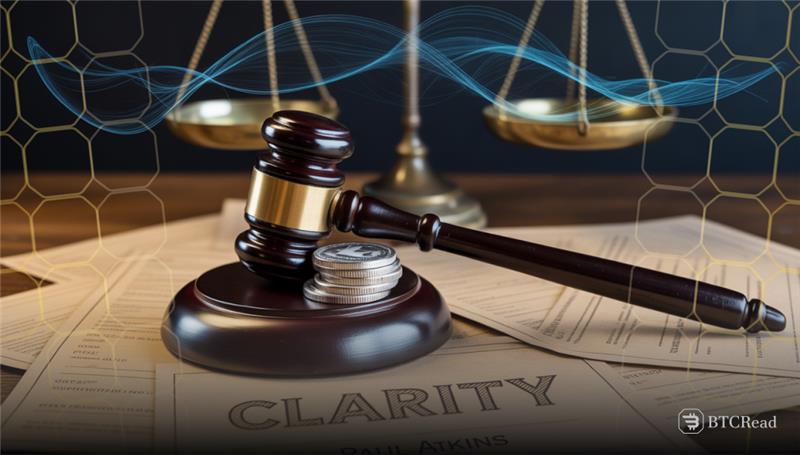Paul Atkins, incoming head of the U.S. Securities and Exchange Commission, is redefining how the agency regulates crypto. During a Senate hearing, Atkins underscored how investor protection will have to depend on transparent, written rules rather than ongoing legal cases. Atkins expressed his vision of developing a reasonable, comprehensible system to regulate digital assets while not smothering growth in the evolving crypto sector.
Atkins took over as SEC Chair in April in a contentious political fight over his confirmation. The new chair returned to the commission with a vision to roll back years of aggressive action by his predecessor, Gary Gensler. Securities laws were leveraged by Gensler to go after crypto projects, which regulators in the industry perceived as unduly restrictive and harmful to U.S. competitiveness.
Atkins promised to use traditional rulemaking procedures in which comments from the public inform policies, rather than sanctioning businesses in retrospect. He said that transparent standards will prevent scams for investors and enable legitimate projects to mature in the open. The SEC, under his tenure, dismissed some prominent lawsuits and produced some highly anticipated guidelines for crypto projects, including staking services rules.
Crypto Regulation Shifts With SEC Leadership
While Congress is pushing from the top down to transform how the U.S. approaches digital assets, Atkins is fostering reform from the inside. Last week, lawmakers introduced the CLARITY Act, which would move crypto from under the purview of the SEC and establish a new regime altogether. Representative Bryan Steil said the proposal would stimulate innovation, keep fraud at bay, and advance American tech leadership.
Atkins acknowledged the legislative debate going on in a continually evolving manner but stated the SEC would still be at the forefront of managing market creation. They promoted the Crypto Task Force and forthcoming roundtable on DeFi as critical measures toward working in partnership with creators, not punishing them. They added that blockchain technology also held the potential to lower costs and improve transparency in finance systems.
His tenure represents a pivot towards how Washington approaches crypto, with increased emphasis on cooperation, regulatory certainty, and stability in the industry in the long term.







